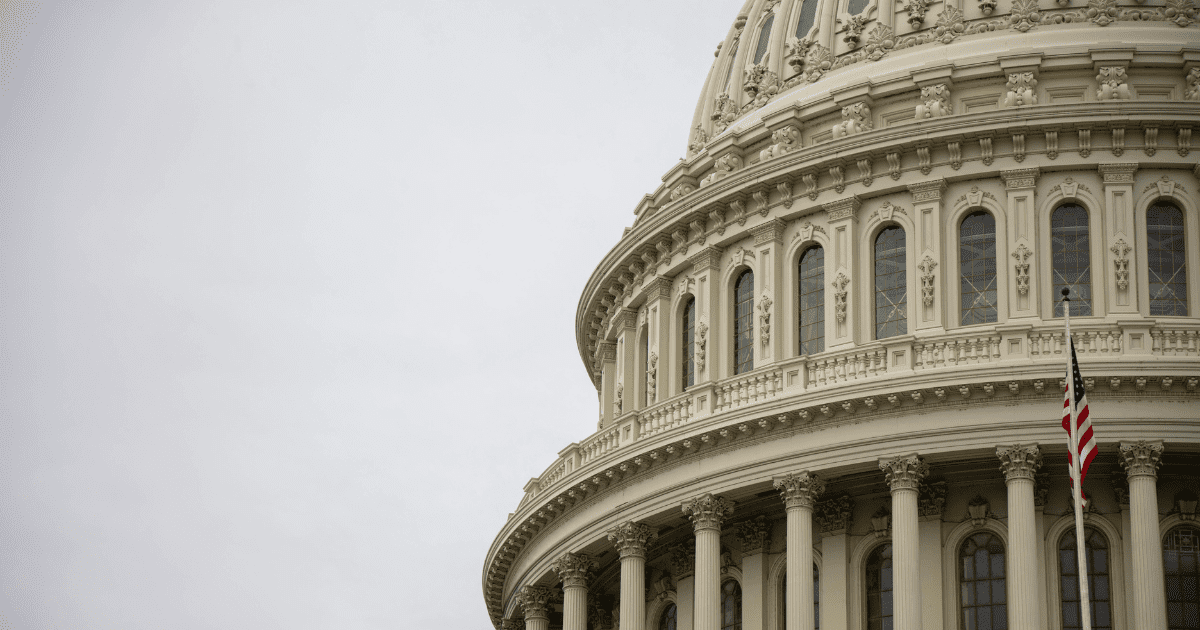By Sadie Aldaya
Are we really called to homeschool? Do we really need to “hear from the Lord” about homeschooling, as if some parents are built for it and some aren’t? Or rather, could homeschooling really be the “default” on the dropdown menu of educational choices afforded to parents? Is Scripture clear on who is responsible for the education of children? Is it offensive to ponder such ideas?
Stay with me a minute and see if I don’t persuade you. If I don’t persuade, enlighten, or at the very least give you pause, then we can part friends.
Common Reasons to Homeschool
Let’s start with common reasons for homeschooling. These are in no particular order, and this list is not exhaustive. If history is any indicator of the future, this list will undoubtedly grow as the decades pass, as I’ve seen the list grow in the last two decades alone.
Here are a few common reasons to homeschool:
1. The Academic Reason
2. The Political Reason
3. The Social Reason
4. The Religious Reason
1. The Academic Reason: How do we know Our Children are Learning?
Sitting in an overcrowded, stuffy waiting room of a government building, the lady sitting next to me inquired as to whether I homeschooled our children. I don’t know if it was my ever-burgeoning purse with the “let’s take it with us, we don’t know if we’ll need it or not” items or if our two small children sitting quietly for several hours working on their schoolwork was the dead give-away. I smiled and affirmed her suspicions. She asked, “How do you know your children are learning?”
In my early years of homeschooling, I would’ve felt the need to defend my choice, prepared with statistics and proof I was indeed a qualified and successful homeschooling mother and that our children were brilliant (all mothers’ children are brilliant and special, don’t cha know!). I could tell this lady wasn’t challenging me. She was genuinely curious.
Cocking my head to the side, thinking of the multiple responses I could answer…
“I used to be an expert, a professional teacher, teaching in both public and private schools…
I test them on the material…
I require a level of 85% mastery before we move on to other material…
I assess where they are at and teach to their level, providing accountability and plenty of opportunity for practice and mastery.”
Instead, an alien thought popped into my mind… one I had never entertained before, and before I knew it, I spouted,
“I am a certified teacher, but I wouldn’t have stayed long in the classroom, nor has teacher training aided me in homeschooling. I would have quickly climbed the administrative ladder and become a superintendent of a district, making hundreds of thousands of dollars a year. Over the course of, say, 20 years, I would have earned well over $6M in income, not counting retirement plans and investment opportunities.
I gave all that up to educate our children. Nobody has more vested interest in the education of our children than their father, and I do. You don’t think I will know if they are learning or not?”
She responded,
“Well, when you put it that way, I guess you would!”
I suppose in her mind, a large salary, or rather a sacrifice of one, was a determining factor of success.
What I didn’t tell her is that:
- on my worst day of homeschooling, I could accomplish infinitely more with two children than I could have with my class of 24-30 students on my best day of teaching in a brick-and-mortar school
- I learned not to sweat the small stuff, like my son not learning to tie his shoes until he was nine years old. I was confident that by the time the boy was 18 and ready to leave the house, he would have learned to tie his shoes. I didn’t feel compelled to “keep up or get left behind.”
- we were never “behind”—whatever that meant
- when I was completing my teacher preparation coursework, I was instructed to “teach to the middle.” Ignore the bright students; they will be fine. Don’t waste your time with the “slow learners”; you don’t have time for them. That was the thinking. I hadn’t yet learned what Andrew Kern, President of CiRCE, said: “Children are souls to be nurtured, not products to be measured.”
Yes, we ensured our children received the academics they needed, and the Lord blessed us with good friends to homeschool with that I could rely on.
When our young son asked the difference between nuclear fission and fusion, I asked him to read up on it and phone my friend, who was a rocket scientist. When our daughter took piano lessons from our church pianist, her teacher gave me incredible insights into our daughter I’d yet to discover.
Our decision to homeschool for academic reasons was well-founded, as it turns out. In his new book, Indoctrinating Our Children to Death: Government Schools’ War on Faith, Family, & Freedom – And How to Stop It, Alex Newman quoted research posited by Dr. Brian Ray, President and co-founder of the National Home Education Research Institute (NHERI).
“The largest study comparing homeschool students to others amazingly revealed that homeschool 8th-grade students score the same as 12th-grade public school students.”
Newman wrote that Dr. Ray went on to say,
“‘There is no empirical evidence that a nation or society needs most or any of its children to attend state or government-run institutions called schools in order to be a civil and educated society… adding that the modern homeschool movement is proof positive’ that the current government-education machine isn’t necessary for children to do well.”[1][2]
Interestingly, the research was conducted and first reported by Dr. Lawrence Ruder, University of Maryland, a public university, who administered academic tests for more than 20,000 homeschooled students.
The bottom line is that we didn’t homeschool alone; the Lord provided the support we needed, and nobody was more invested in their academic success than their father and I. Many parents homeschool for academic reasons. Some want to accelerate the curriculum; others want to scale the scope and sequence. Still, others want to eliminate the socialist and woke ideology that is pervasive in their current curriculum. Whatever the reason, some families choose to homeschool for academic reasons alone.
2. The Political Reason: Voting with Our Pocketbook
We voted at the ballot box and voted with our pocketbooks when we chose not to enroll our children in the civil government educational system. Approximately $10-16K is spent on each child in public school, a system that doesn’t align with our core Christian values nor encourages us to take responsibility for the education and rearing of our children. By not enrolling in government schools, we deprived the civil school an average of $312,000, but we have just two children—multiply that number by two for four children, by three for six children. You get the point.
One homeschool compadre said she was verbally berated by a stranger in a store. The lady had accused her of stealing from the public school! Yes, stealing because my friend had the audacity to remove her children from the bloated indoctrination camps. Stealing, because you know, the government is entitled to your money.
Much more could be said about the politics of the government school system, and many have already said it. I will refer you back to the book by Alex Newman; it’s a fantastic read.
For those who would endeavor to expand their understanding of the biblical jurisdiction and authority of education, Abolition: Overcoming the Christian Establishment on Education, by Kevin Novak, helps establish legal and biblical guardrails in the three spheres of government: family, church, and civil.
The bottom line is that when you opt out of government-funded education, you are making a statement bigger than you realize.
3. The Social Reason: What about Socialization?
Insert eye roll and an audible groan here. Some readers may even wonder if the debate about homeschooling and socialization is still an issue. I would tend to agree.
There seems to be a long-held idea among many that socialization connotes “…learning how to get along in this world by getting along with thirty other children of the same age in a small [and mostly the same socio-economic demographic] classroom.”[3]
When homeschoolers are asked the age-old dreaded question, “What about socialization?” the inquirer usually refers to activities and relationship building, things usually related to positive socialization. They neglect to acknowledge that socialization comes in two forms: negative and positive.
Our sweet daughter had a lazy eye, and she wore a patch over an eye for a whole year before her surgery. Her eyes necessitated thick “Coke bottle” glasses. She was plagued with eczema to the point that even her brother called her a leper when out of our earshot, and she had severe asthma. Oh, let’s not forget she was frail, labeled as a “failure to thrive” child by doctors until she was six years old. I know what kind of socialization our daughter would have received in a public or private school setting.
Drs. James Dobson and the late Raymond Moore had much to say about early exposure to socialization and young children. A simple search engine query will reveal the many interviews, books, research, and articles they produced.
While at the dentist, a high schooler told me that the hygienist was a bit saddened to learn she was a homeschooler. She asked my gregarious friend, “How do you have any friends?” Without skipping a beat, the student replied, “Do you go to school?” to which the hygienist replied, “No.” The student quickly asked, “Then how do you have any friends?” Point made.
If you’ve stayed with me thus far, covering academic, political, and social reasons for homeschooling but are still wondering how homeschooling is the default and not a calling, I offer the following.
4. The Religious Reason: Why Homeschooling is the Default and Not a Calling?
Although other people of faith choose to homeschool for religious grounds, Christians offer these compelling reasons. They are generally broken down into three main categories, all of which are clearly supported in the Scriptures:
- Curriculum
- Discipleship
- Authority
Christian homeschooling parents want complete control over the curriculum to add devotions, Bible lessons, prayer, catechism, Scripture memory work, or other religious training to their day. They desire to remove a curriculum that does not align with their Christian values and add one that aligns with their Christ-centered worldview.
Some parents intuit this need, while others point to Proverbs 22:6, “Train up a child in the way he should go, and when he is old, he will not depart from it.”
Homeschooling parents understand education does not happen in a vacuum; it is not value or moral-neutral. It always has a bias, and they understand how crucial it is to inculcate their children with values that lead to freedom, from the heart of God, rather than bondage and slavery that Marxism offers.
Shaping the hearts and minds of their children is the cornerstone of good stewardship and child-rearing. They know that handing their children over to the indoctrination centers of the nanny state is not helping them to “train up their child in the way they should go…” They desire more time with their children to guard, form, and protect their children’s hearts. To pour into them. To model for them. To tend and cultivate, to rightful steward the soul, the image-bearer, entrusted to them by the Almighty. This is discipleship.
This leads us to the realm of authority in homeschooling and the “Deuteronomy Mandate.” So named from these passages in Deuteronomy 6:1-2, 6-7, and 11:18-19.
“Now this is the commandment, the statutes and the judgments which the LORD your God has commanded me to teach you, that you might do them in the land where you are going over to possess it, so that you and your son and your grandson might fear the LORD your God, to keep all His statutes and His commandments which I command you, all the days of your life, and that your days may be prolonged.
And these words that I command you today shall be on your heart. You shall teach them diligently to your children and shall talk of them when you sit in your house, and when you walk by the way, and when you lie down, and when you rise.”
How can Christian parents accomplish this when their children are at a public or private school eight hours a day, come home to eat dinner, do homework, bathe, and then go to bed? Rinse and repeat five days a week.
Over the years, several parents bemoaned this schedule hijacking to this writer and confessed that they felt like they were regulated to only weekend parenting. They felt the rub—little time to fulfill the Deuteronomy Mandate.
The Merriam-Webster dictionary defines default as “…a selection automatically used by a program in the absence of a choice made by the user.”[4] In other words, it is the presumed course of action. The default assumes the answer.
This is why homeschooling is not a calling or gifting but rather the default for educating one’s children. Nowhere in Scripture do we find instruction that tells us to abdicate our authority and stewardship of our children—their education—to the state or even the church. The exception, of course, would be if, like Hannah, we were raising a child for the Levitical priesthood.
Of the reasons to homeschool shared here, the religious basis is the strongest and perhaps the least popular rationale today, for it gives homeschooling and education its purpose and foundation.
I applaud parents who choose the default to educate their children. This isn’t to say that they isolate themselves and nobody else can help them. It is to say that there is biblical corroboration that children are educated by their parents and not the state.
Perhaps you are heartbroken because your choices, life’s circumstances, or something else will not permit you to withdraw your children from the socialistic, communistic, woke ideological indoctrination centers and homeschool.
There is help for you. It won’t come without cost or sacrifice. Remember, I sacrificed millions to homeschool our children. It may require you to operate your household on a budget and/or adjust your lifestyle to a single income. It may require you to research individuals or organizations to assist you.
Let me offer you a few resources to get you started:
- Public School Exit is an incredible resource that provides more reasons to homeschool and steps to leave the public school system.
- Homeschool Legal Defense Association (HSLDA) can help you understand homeschooling law in your state.
- Classical Conversations® can help you connect with other homeschooling families in your area.
- Truth & Lies Documentary can better help you understand the hidden agendas of the civil government school system.
Cut out a circle of paper for each child you have. Equally, divide the circle into 18 wedges and display it where you will see it daily. Each year, color one wedge in the circle on your child’s birthday. This will serve as a daily reminder that the window of opportunity to mentor and disciple (educate) your children is quickly closing.
It was not my aim to “bind your conscience,” to pilfer a phrase from a friend who cares about you and me enough to challenge my thoughts and ideas. It was my intention to point out that the Lord has given our children to us as a stewardship.
We know that “…to whom much is given, much is required.” (Luke 12:48) Perhaps this case will solidify your resolve to homeschool. Perhaps these words have given you pause. In the end, if you reject the whole idea of homeschooling as the default option, let us shake hands, wish one another the best, and part friends.
You may enjoy Joint Ownership and Your Child’s Education to explore the idea of truly owning your child’s education.

Sadie Aldaya is the Research & Quality Assurance Specialist for Classical Conversations Special Projects & Policy Research Department. Sadie and her husband homeschooled for over 20 years. She served as a Classical Conversations field representative for 15 years, providing community and support for other homeschooling families. Sadie’s passions are to stop government encroachment in areas where they have no authority or jurisdiction and to see Christians return to a biblical Christ-centered worldview.
[1] Ray, Brian D. 2017. “A Systematic Review of the Empirical Research on Selected Aspects of Homeschooling as a School Choice.” Journal of School Choice 11 (4): 604–21. doi:10.1080/15582159.2017.1395638. https://www.nheri.org/a-systematic-review-of-the-empirical-research-on-selected-aspects-of-homeschooling-as-a-school-choice/ (19 May 2024)
[2] Alex Newman, Indoctrinating Our Children to Death. Government Schools’ War on Faith, Family, & Freedom—And How to Stop It. (Florida: Liberty Sentinel Press, 2024), 102.
[3] Mary Gardner, “What About Socialization,” Homeschooling Adventures. https://www.homeschoolingadventures.com/socialization/ (19 May 2024)
[4] “default.” Merriam-Webster.com. https://www.merriam-webster.com/dictionary/default. (19 May 2024)















